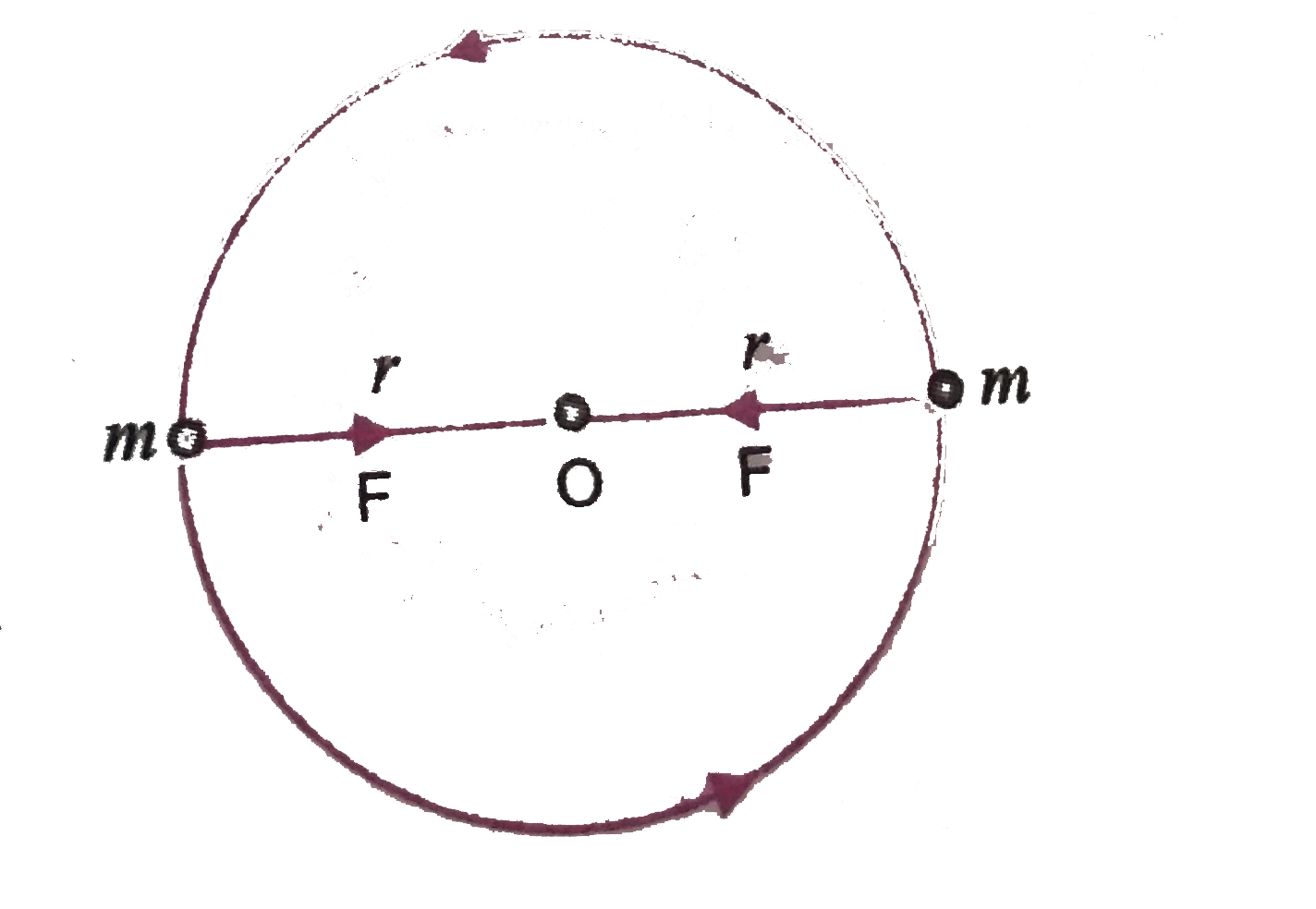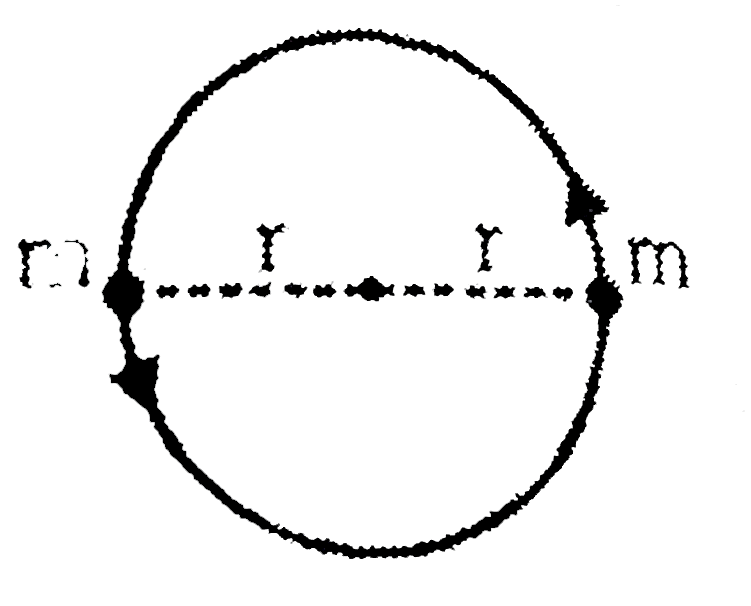Two particles of equal mass (m) move in a circle of radius (r ) under the action of their mutual gravitational attraction. Find the speed of each particle.
The two particles will move on a circuler path if they always remain diametrically opposite as shown in

so that gravitational force on one particle due to the other is directed along the radius. This would provide the necessary centripetal force i.e.,
F=mv2r=Gmm(r+r)2orv=√Gm4r
Topper's Solved these Questions
- BOOK - PRADEEPCHAPTER - GRAVITATIONEXERCISE - Value Based Questions4videos
GRAVITATION
- BOOK - PRADEEPCHAPTER - GRAVITATIONEXERCISE - Problem for practice27videos
GRAVITATION
- BOOK - PRADEEPCHAPTER - GRAVITATIONEXERCISE - very short answer22videos
GRAVITATION
- BOOK - PRADEEPCHAPTER - FORCES AND LAWS OF MOTIONEXERCISE - MOCK TEST36videos
FORCES AND LAWS OF MOTION
- BOOK - PRADEEPCHAPTER - MOTIONEXERCISE - Mock test24videos
MOTION
Similar Questions
Two particles of equal mass (m) move in a circle of radius (r ) under the action of their mutual gravitational attraction. Find the speed of each particle.
View Solution_S01_003_Q01.png)
Two particles of equal mass (m) each move in a circle of radius (r) under the action of their mutual gravitational attraction find the speed of each particle.View Solution
Knowledge Check
- Question 1 - Select One
Two particles of equal mass m go around a circle of radius R under the action the of their mutual gravitational attraction . The speed v of each particle is
A12√GmRB√4GMRC12R√1GmD√Gm2R - Question 2 - Select One
Two particles of equal mass 'm' go around a circle of radius R under the action of their mutual gravitaitonal attraction. The speed of each particle with respect to their centre of a mass is -
A√Gm4RB√Gm3RC√Gm2RD√GmR - Question 3 - Select One
Two particles of same mass m go around a circle of radius R under the action of their mutual gravitational attraction. The speed of each particle is ,
AV=12R√1GmBV=√GM2RCV=12√GmRDV=√4GmR
For particles of equal massses M move along a circle of radius R under th action of their mutual gravitational attraction. Find the speed of each particle.
View SolutionTwo particles of equal mass go round a circle of radius R under the action of their mutual gravitational attraction. Find the speed of each particle.
View SolutionTwo particles each of equal mass (m) move along a circle of radius (r) under the action of their mutual dravitational. Find the speed of each particle.
 View Solution
View SolutionTwo particles of equal masses m go round a circle of radius R under the action of their mutual gravitational attraction. The speed of each particle is v=√GmnR. Find the value of n.
View SolutionTwo particles of equal mass go around a circle of radius R under the action of their mutual gravitational attraction. The speed v of earth particle is
View Solution
